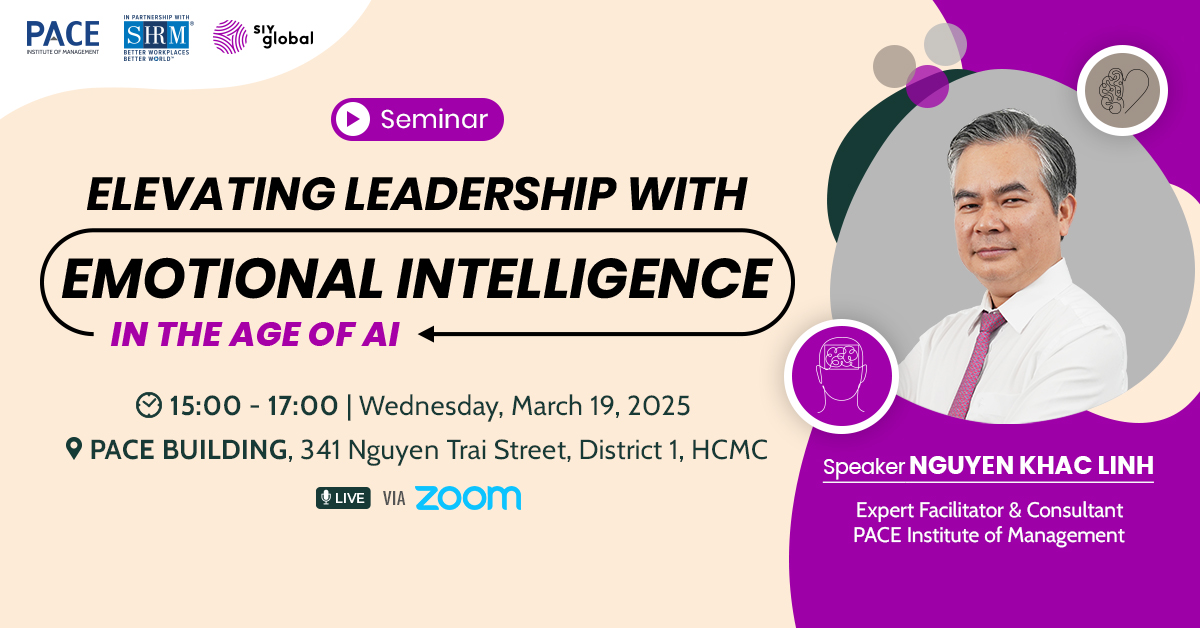RESOURCES
-
Articles | 04/11/2025
GIẢM 10% CÁC CHƯƠNG TRÌNH ĐÀO TẠO khi thanh toán bằng thẻ VISA Doanh nghiệp
Giảm 10% học phí (tối đa 5.000.000đ) khi thanh toán 100% học phí các chương trình của Mindful Leadership Vietnam bằng thẻ VISA Doanh nghiệp View more
-
Articles | 22/10/2025
Leading Strategy and Management Consulting Firms in Vietnam
Vietnam’s Strategy and Management Consulting Firms deliver breakthrough solutions that help organizations optimize operations, develop leadership, and transform culture. View more
-
 Articles | 31/07/2025
Articles | 31/07/2025Mindfulness: Moving from autopilot to aware
Are leaders and their teams operating on “autopilot”? View more
-
 News | 03/02/2025
News | 03/02/2025Seminar: ELEVATING LEADERSHIP WITH EMOTIONAL INTELLIGENCE IN THE AI ERA
Humanity is entering a new era where Artificial Intelligence (AI) is reshaping how we work, lead, and connect with teams. View more
-
 Articles | 13/11/2019
Articles | 13/11/20195 REASONS YOUR COMPANY SHOULD BE INVESTING IN MINDFULNESS TRAINING
Research on this practice shows that meditation and mindfulness training more generally offer businesses a real ROI. View more
-
 Articles | 17/09/2024
Articles | 17/09/2024Want to increase trust in your leadership abilities?
If you’re in a leadership role in the modern workplace, you probably know the feeling: you’re balancing the larger strategic initiatives (and imperatives) of the company with the day-to-day concerns of your workforce. View more
-
 Articles | 26/08/2024
Articles | 26/08/2024Three Ways to Build and Maintain Your Team’s Motivation
In the ever-changing world you live in, it can sometimes be difficult to keep up with the changes around us. At times maintaining the motivation to push forward can be a challenge both personally and professionally. This being said, the need to revisit the concept of motivation individually as well as within our teams is necessary in order to push forward toward our organizations’ goals. But this leads to the question: how can leaders do this for their teams? View more
-
 Articles | 29/07/2024
Articles | 29/07/2024How to Navigate Conflict with Emotional Intelligence
Conflict is inevitable—at least for most of us who work, live, or engage with other human beings on a regular basis. Collaborating and engaging with other humans can create meaningful connections and moments of joy, but it can also create division and disagreement. What’s the common denominator for either a positive or negative interaction? Emotions. Conflict doesn’t exist without emotion because in order for conflict to exist, we need to care about the situation. View more
PACE-MLV ©Copyright 2025





